Whether you majored in history, minored in history, or just wish you knew a little bit more about the history of the world, reading about historical events is never time wasted! But with so many books on the shelf, how do you know which are most informative? Best Master's Degrees has you covered! Below are the 30 must-read books to supplement your history degree.
1491: New Revelations of the Americas Before Columbus
Charles C. Mann
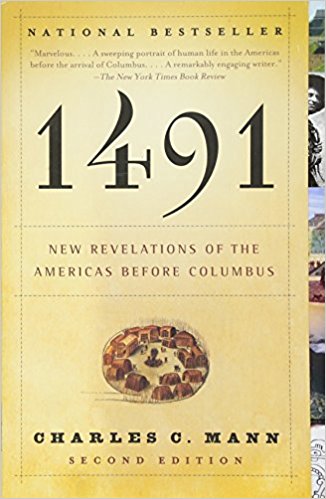
Every history program from 7th grade to grad school covers Columbus and America's earliest colonies. Few, however, cover with detail the years before 1492, when Columbus sailed the ocean blue. In 1491, bestselling author Charles C. Mann describes with fascinating detail the civilizations that lived in North America before the arrival of the Europeans. Through stories and information about topics like the genetic engineering of corn in Mexico and the incredible social advances of the Aztecs, Mann paints a stunning picture of the evolution of civilization from pre-European times to post.
The Arabs: A History
Eugene Rogan
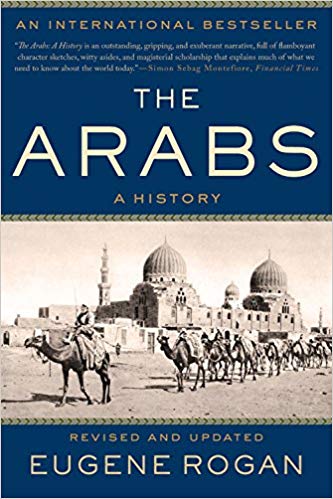
Commonly used as a textbook in Middle Eastern studies courses, Eugene Rogan's The Arabs isn't your typical history of the Arab world. However, it has been called "the definitive history of the Arab world. Rogan starts his text not with the founding of Islam as might be expected, but with the Arabs conquering of the Ottomans. This leaves the focus of Rogan's book on the dense history of the modern-day Arab. Rogan is remarkably unbiased in this pursuit, and supplements his extensive research with exclusive interviews and various insider accounts.
Bury My Heart at Wounded Knee: An Indian History of the American West
Dee Brown
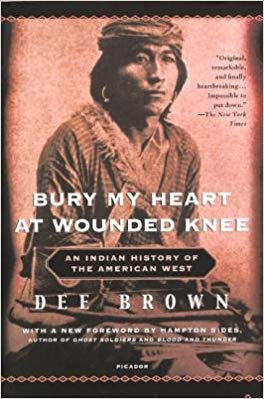
First published in 1970, Bury My Heart at Wounded Knee has never gone out of print. Dee Brown is an Arkansas native and long-time historian of all things Native American. This classic book is both heartbreaking and eye-opening. Brown describes with great detail the history of Native Americans in the western United States, and the effects American expansionism had on their culture, religion, and daily life.
Cod: A Biography of the Fish that Changed the World
Mark Kurlansky
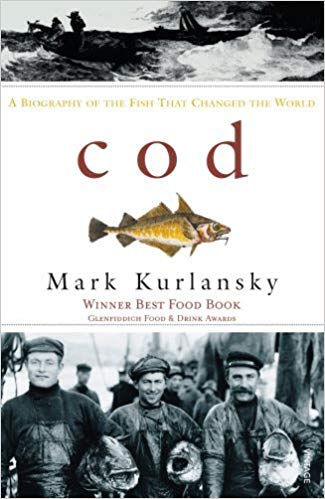
Yes, Cod is the biography of a certain type of fish, but it might as well be a concise history of the entire world. Writing from this unique perspective, bestselling author Mark Kurlansky (who also wrote a history book about the influence of salt) narrates a fascinating history. This includes how the Europeans first sail across the Atlantic in search of larger schools of cod. He relates how medieval peasants survived by eating dried cod. We see how Basque people became a gastronomic powerhouse by salting cod. Surely you're starting to understand the importance of this titular fish. As an added bonus, Kurlansky offers a delicious legacy of cod recipes.
D-Day Through German Eyes
Holger Eckhertz
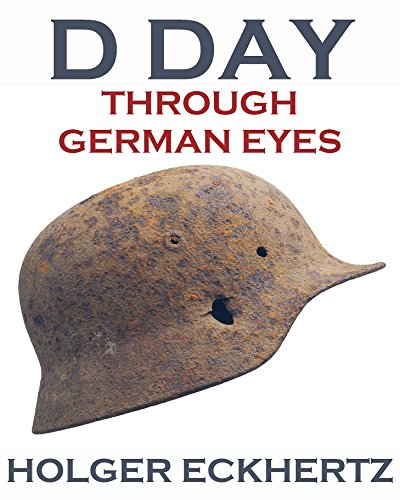
History classes throughout the world discuss World War II and D-Day almost exclusively from the perspective of the Allies. After all, it was the Allies who secured victory shortly after D-Day, and it is the victors who get to tell the tale to future generations. In D-Day Through German Eyes, Holger Eckhertz does exactly what you might expect. He tells the story of D-Day from the perspective of the side which ultimately lost the war. Not only does Eckhertz's book offer a new perspective on one of history's most famous events, it also humanizes figures that don't often get that consideration.
A Distant Mirror: The Calamitous 14th Century
Barbara W. Tuchman
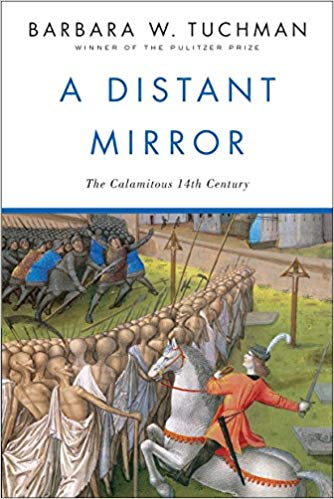
In many ways, the 14th century is one of history's most important. It was a glimmering age of cathedral building, chivalry, and crusades; It was also a time of spiritual agony and economic turmoil. Bestselling historic author Barbara W. Tuchman describes in A Distant Mirror the ways in which the daily lives of figures like the knight, the cardinal, the saint, and the scholar moved the world forward in the most furious and ungraceful ways possible.
Embracing Defeat: Japan in the Wake of World War II
John Dower
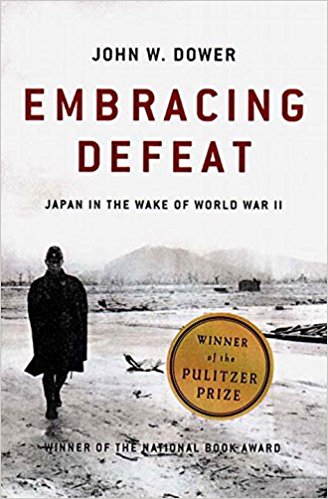
Modern-day Japan is one of the most powerful nations in the world. But unless you majored in Asian history, its past is widely ignored in Western universities. John W. Dower's Embracing Defeat fills in some of the blanks by detailing the six years following World War II, in which the Americans occupied Japan. He draws from a variety of sources, both Japanese and American. Dower illustrates the delicate post-war relationship between victor and vanquished that ultimately became one of history's strongest alliances. Embracing Defeat was awarded the Pulitzer Prize and was a finalist for both the Lionel Gelber Prize and the Kiriyama Pacific Rim Book Prize.
Games Without Rules: The Often Interrupted History of Afghanistan
Tamim Ansary
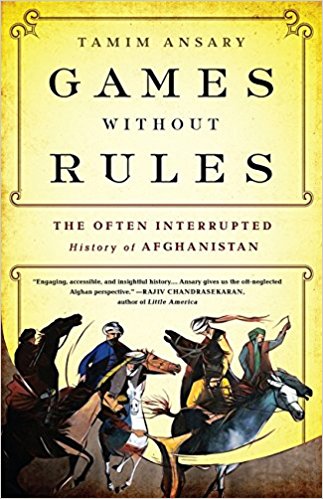
For better or worse, Afghanistan has been a major subject of international relations in the last two decades, yet the typical person knows little about the country. Fortunately, Tamim Ansary has written Games Without Rules. This must-read book provides the reader with an easy-to-follow history of Afghanistan. What makes this book especially unique is that it's told from the Afghan perspective, even as it describes the country's many struggles to become a solid and successful nation.
Grant
Ron Chernow

For better or worse, the Civil War is a favorite modern-day debate topic. Bestselling author Ron Chernow gets to the bottom of the truth about Ulysses S. Grant, spending more than 1,000 pages documenting the life of the often-controversial Union Army general. He covers Grant's early life, the Civil War, and Reconstruction. By the end of this epic biography, Chernow hopes readers will see that General Grant was not only "instrumental" in defeating the Confederate Army, but also "the single most important figure behind Reconstruction."
Ron Chernow was awarded a Pulitzer Prize for his book about George Washington. He also won National Book Award for his history of the J.P. Morgan dynasty.
The Great War for Civilisation: The Conquest of the Middle East
Robert Fisk
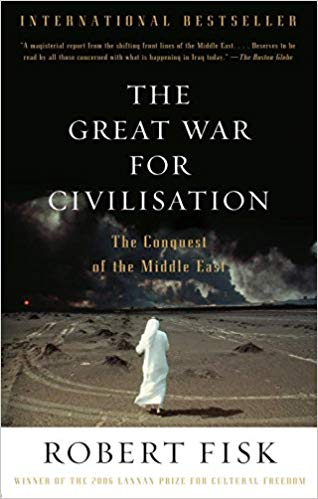
Robert Fisk's The Great War for Civilisation is a great read for better understanding the conflict in the Middle East — that is, one of the few happenings currently blurring the line between history and current event. Fisk, an award-winning journalist who has covered this region for more than four decades, offers a detailed and dramatic history of Middle Eastern life in the last half century. Some of the events chronicled include the Algerian Civil War, the Iranian Revolution, the American hostage crisis in Beirut, the Iran-Iraq War, the 1991 Gulf War, and the 2003 invasion of Iraq by Western forces.
Headstrong: 52 Women Who Changed Science and the World
Rachel Swaby
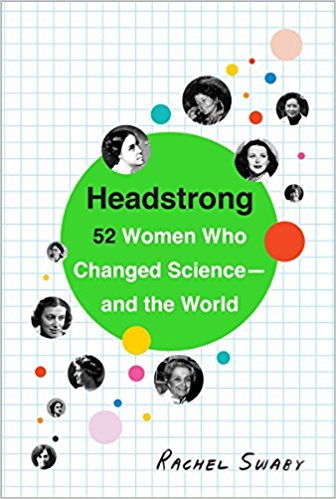
Human progress has long been entwined with scientific progress. In Headstrong, Rachel Swaby confronts that historic fact in a unique way: by highlighting the contributions of 52 women. The women highlighted by Swaby include Rachel Carson, Silent Spring author and the voice behind environmental awareness; Marry Anning, a pioneering archaeologist; famous nurse and social reformer Florence Nightingale; Virginia Apgar, who developed newborn health standards; and Hedy Lamarr, the actress and wartime heroine who developed a system for coded radio waves to assist the navigation of torpedos.
Histories
Herodotus
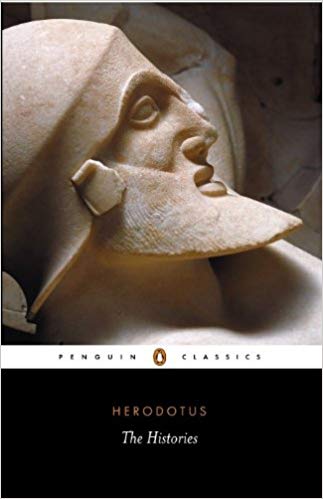
To truly understand history, it's often necessary to return to the original sources. Histories, by the 5th century Greek historian Herodotus, is widely thought to be one of the Western hemisphere's first examples of historical literature. The real purpose of Herodotus's writings was to record the ways in which a small group of rival Greek city states banded together to reject the mighty Persian empire. But as an added bonus, Herodotus provides the modern reader with myriad examples of what daily life was like during the height of the Greek Empire.
Islam: A Short History
Karen Armstrong

Unlike the aforementioned book The Arabs, this bestselling text by Karen Armstrong details the history of the religion of Islam, and not just its main adherents. In Islam: A History, Armstrong acknowledges that no modern religion is as widely feared and misunderstood as Islam. She seeks to widen that narrow view through fascinating stories, personal accounts, and inside looks at what is now the world's fastest-growing faith.
The Island at the Center of the World: The Epic Story of Dutch Manhattan and the Forgotten Colony That Shaped America
Russell Shorto
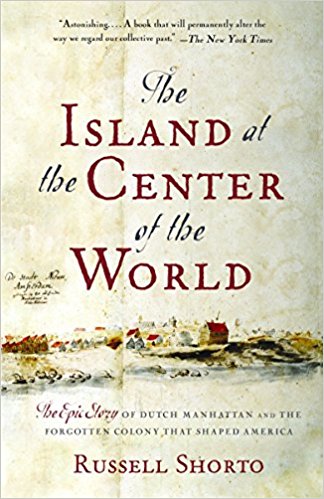
The titular island of The Island at the Center of the World was cosmopolitan and multi-ethnic. It had a healthy free-trade economy, and thrived on individual rights and religious freedom. Sound familiar? The island Russell Shorto writes about in this fascinating must-read history is New Amsterdam, better known today as Manhattan. Shorto documents the evolution of New Amsterdam from its time as a successful Dutch colony to its place among the American Revolution. He's careful to separate the myths from reality. Spoiler alert: The island wasn't purchased for a mere 24 dollars, nor did it have a governor with a peg leg.
Magna Carta: The True Story Behind the Charter
David Starkey
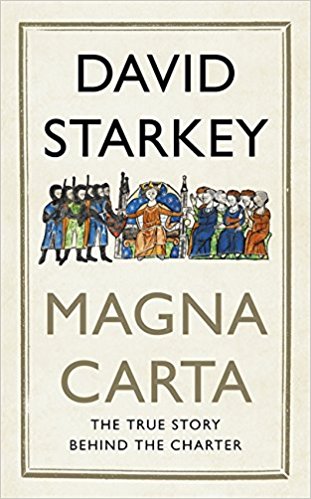
Without the Magna Carta — one could argue — we wouldn't have any of the modern-day documents guaranteeing our freedoms. That fact alone makes David Starkey's bestseller a must read. In this sweeping history, Starkey describes the entire story, from the 1215 battle in which King John was forced to sign over some of his endless powers, to the long-lasting effects of the document on future generations and nations.
Modern Times: A History of the World From the 1920s to the Year 2000
Paul Johnson
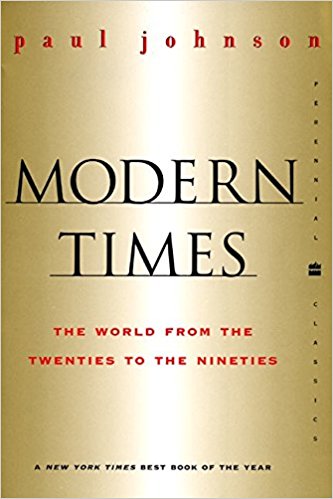
In Modern Times, popular historian and author Paul Johnson connects a handful of world-changing events to illustrate how tumultuous a time the 20th century actually was. The events cover the aftermath of World War I, the rise of the Marxist state in Europe, China's Communist Revolution, and the radicalization of Latin America, to name a few.
Narrative of the Life of Frederick Douglass, an American Slave
Frederick Douglass
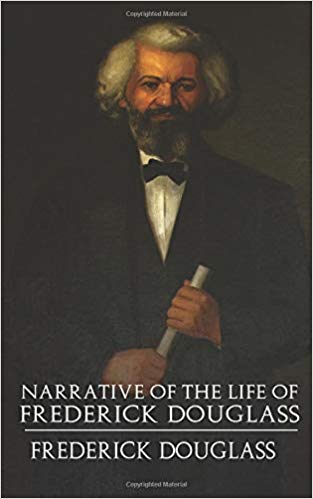
A study of pre-Civil War America and/or the American abolitionist movement would not be complete without reading Frederick Douglass's Narrative. As the first book Douglass wrote about his fascinating life, Narrative covers his birth as a slave, his teenage years during which he taught himself to read and write, the consequences of those actions, and his ultimate escape to the northern United States. This book launched Douglass into the limelight, made the horrors of slavery real for many, and ignited the flames of the abolitionist movement.
Nothing to Envy: Ordinary Lives in North Korea
Barbara Demick
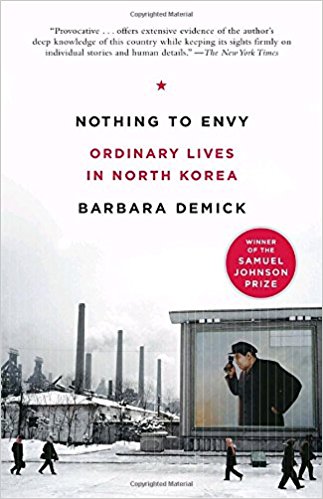
North Korea is one of the most misunderstood countries in the world, yet it's at the forefront of international politics. Although North Korea (and much of the rest of Asia) is often overlooked in general history degree programs, Barbara Demick's Nothing to Envy is an excellent primer on the country's history, culture, and strange political scene. Nothing to Envy was a finalist for both the National Book Award and the National Book Critics Circle. It follows the lives of six North Korean citizens over a span of 15 years. Through heartbreaking stories and sensitive reporting, Demick provides readers with an inside glimpse into what it's like to live without the internet, trust, freedom, and sometimes even a will to live.
On the Origins of War: And the Preservation of Peace
Donald Kagan
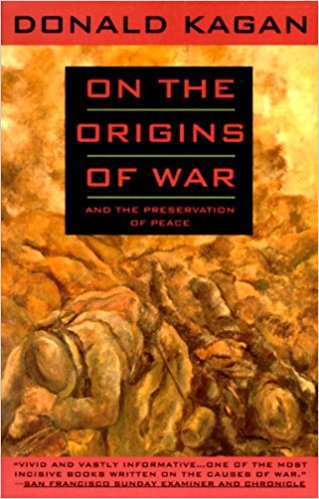
Donald Kagan's On the Origins of War is a must-read book for anyone interested in warfare, conflict, international relations, or even just the world around them. It's organized into into five fascinating and easy-to-read chapters. Kagan dissects the Peloponnesian War, Rome's war with Carthage, World War I, World War II, and the Cold War. In each case, he describes the events leading up to the declaration of war, and the reasons why — and in one case, why not — those events led to conflict.
One Long Night: A Global History of Concentration Camps
Andrea Pitzer
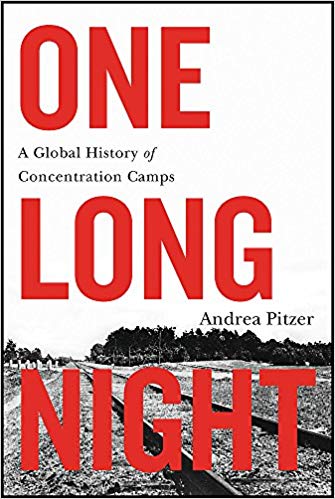
Think concentration camps were reserved only for the Holocaust and World War II? In One Long Night, author Andrea Pitzer points out the devastating fact that in each of the last 100 years, at least one concentration camp has existed somewhere on Earth. Though humanity likes to solemnly chant phrases such as "Never Again," concentration camps have existed in places like Cuba, the Philippines, South Africa, Russia, China, and North Korea, to name but a few. Pitzer uses testimony, exclusive interviews, and countless hours of research to expose daily life in these camps, reveal humankind's greatest atrocities, and highlight some of humanity's greatest heroes and survivors.
The Plantagenets
Dan Jones
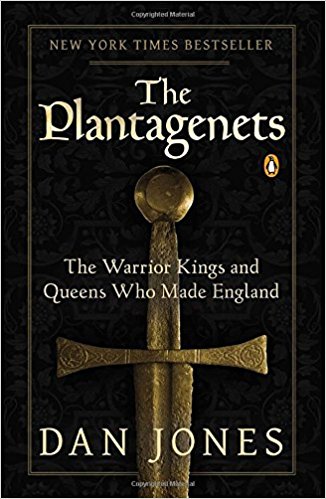
England has long been at the forefront of Western Civilization and much of that has been thanks to its monarchy. In Dan Jones's The Plantagenets the story of England's first dynasty is told through fascinating narration. The stories of Henry II and his queen Eleanor of Aquitaine are there, as are Richard the Lionheart, his "evil" brother King John, Edward II, and many more.
Postwar: A History of Europe Since 1945
Tony Judt
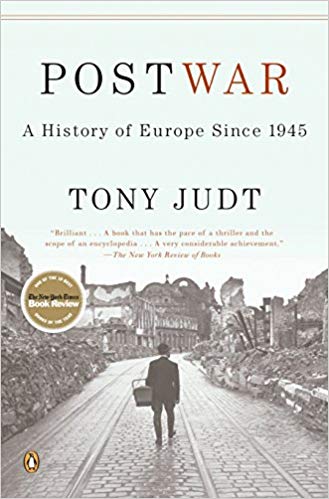
Everything about Postwar is impressive (and mind-boggling and compelling!), making it an easy addition to our list of must-read history books. Well-known historian Tony Jundt spent nearly a decade researching and writing this sweeping account of all 34 European nations, and the 60 years following what is easily modern history's most world-changing conflict. Postwar was a finalist for the Pulitzer Prize, was awarded the Arthur Ross Book Award by the Council on Foreign Relations. It was also named one of the New York Times' 10 Best Books of the Year.
The Rights of Man
Thomas Paine
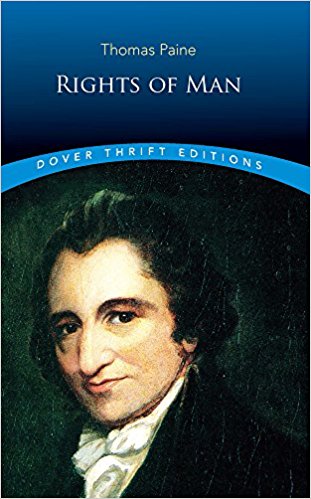
Western civilization has evolved based on certain ideas surrounding what it means to be human, what it means to be a citizen, and what it means to be a government. Though it wasn't the first book to cover those topics, Thomas Paine's The Rights of Man was one of the most influential. Written and published only a few years after the ratification of the United States Constitution, The Rights of Man summarizes Paine's idea that a political revolution is permissible when a government fails to protect its citizens and their natural rights. Paine's book sold nearly 200,000 copies in its first few years It is also credited with inciting independence movements in Wales, Scotland, and Ireland.
The Social Contract
Jean-Jacques Rousseau
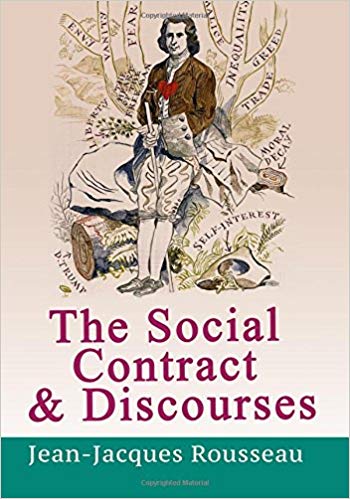
If you're only up for one contemporary book about the Enlightenment, make it Jean-Jacques Rousseau's The Social Contract. This classic work by the respected French philosopher has often been credited with helping to incite the French Revolution. Rousseau eloquently describes the Social Contract Theory — that is, the idea that people are only free if they have and approve of their representative government.
A Splendid Exchange: How Trade Shaped the World
William J. Bernstein
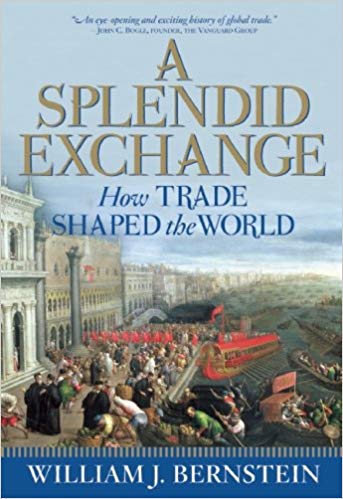
Of all the things that have connected countries and civilizations over the centuries, nothing has proven more world-changing than trade. William J. Bernstein's epic A Splendid Exchange recounts the history of "international" trade, from Mesopotamia in 3000 B.C.E., to the sweeping power of the Dutch East India Trading Company, to the current trading positives and negatives, and beyond.
SPQR: A History of Ancient Rome
Mary Beard
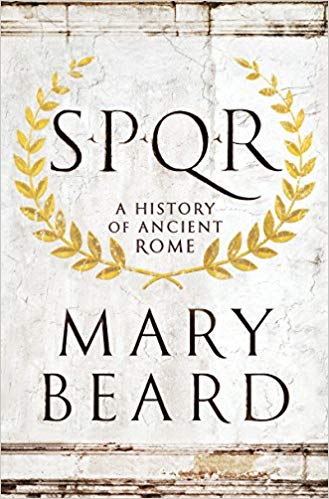
Can one understand the Western world without understanding a bit about the fallen empires that gave it rise? Anyone with a bit of knowledge about history will likely answer such a question with a resounding no! But if you can't distinguish between your Caesars, author and historian Mary Beard has you covered. In SPQR, Beard offers a fresh perspective of Ancient Rome. She outlines more than 1000 years of political triumphs and tragedies, economic power, and progress of civilization.
This is China: The First 5,000 Years (This World of Ours)
Haiwang Yuan, Ronald G. Knapp, Margot Landman, Gregory Veeck (Editors)
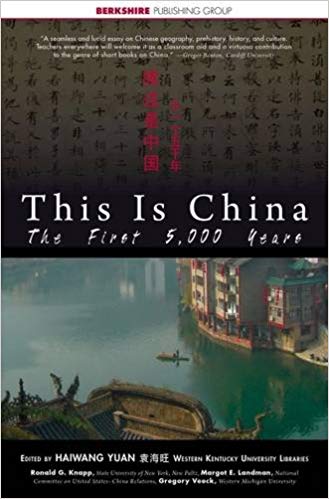
Whether you're an historian, linguist, economist, or stay-at-home parent, no time spent learning about China can ever be considered wasted time. Though it's a concise 120 pages, This is China provides the reader with everything they need to know about China's 5,000 year history, from its earliest dynasties to the powerhouse its expected to become in the 21st century.
The Tudors: The Complete Story of England's Most Notorious Dynasty
G.J. Meyers
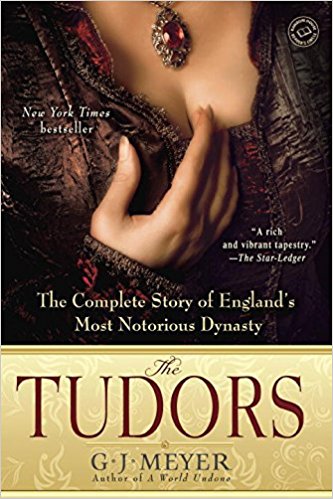
England's Tudor family is one of the best-known political dynasties of all time. Many people can rattle off facts related to Elizabeth I's questionable virginity and Henry VIII's affinity for beheading his wives. However, few are aware that it was the Tudors who brought Protestantism to England and evolved the British navy into the world's most powerful. Despite its silly cover, G.J. Meyers's The Tudors is one of the best books about the Tudor family, and a must-read book that is often skipped over in college history classes. The New York Times bestseller tells the captivating story of Henry Tudor's ascension to the English throne. She covers his son Henry VIII's tumultuous and unpredictable reign, and the rule of Elizabeth I, still considered to be one of Britain's greatest monarchs.
Valiant Ambition
Nathanial Philbrick
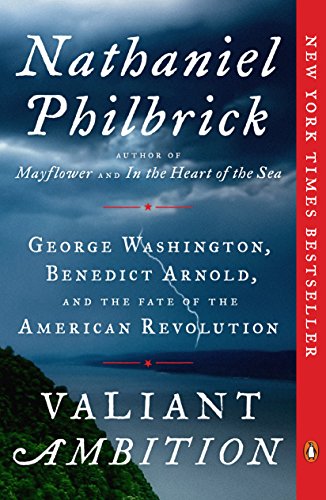
In Valiant Ambition, bestselling author Nathanial Philbrick takes on the daunting topic of Benedict Arnold. You don't need a history degree to know that Arnold was a scheming traitor who double-crossed the Americans to the British during the Revolutionary War. Or was he? As Philbrick states in his excellent book, "Although it later became convenient to portray Arnold as a conniving Satan from the start, the truth is more complex and, ultimately, more disturbing."
We Wish to Inform You That Tomorrow We Will be Killed with Our Families: Stories From Rwanda
Philip Gourevitch
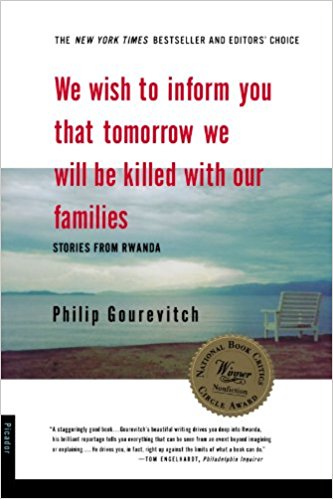
Though it happened during the lifetimes of many of us, the tragic genocide in Rwanda was largely ignored and today, has been all but forgotten. Reporter Philip Gourevitch recounts the personal stories of many who suffered when, in 1994, the Rwandan government encouraged those in the Hutu majority to kill anyone in the Tutsi minority. An estimated 800,000 men, women, and children were brutally murdered — mostly with machetes — in fewer than 100 days. During this time the rest of the world did nothing to stop it. This heartbreaking account of one of humankind's most recent failures is a must-read.